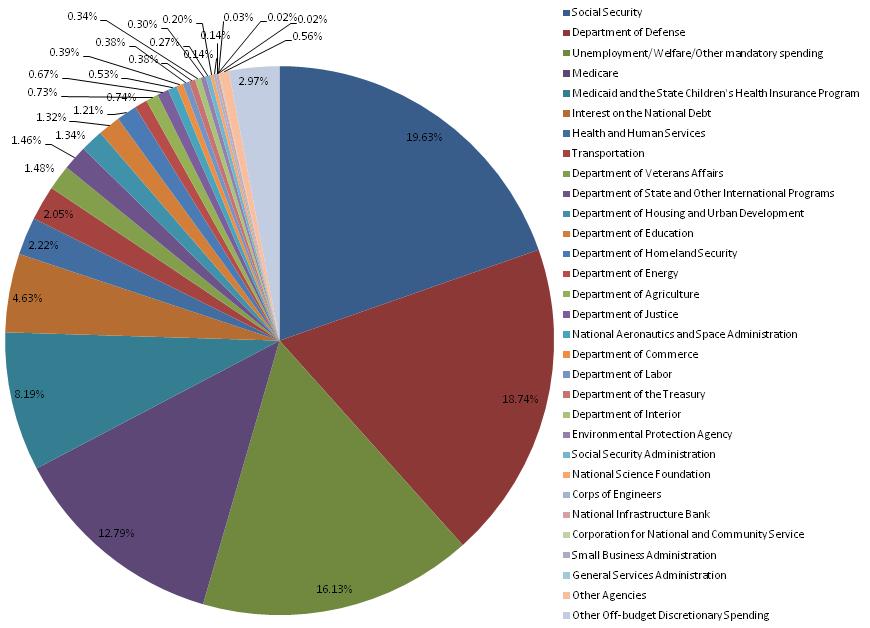Under the Trump administration, the Environmental Protection Agency (EPA) is in trouble. A newly proposed budget would cut spending on the EPA by 31%, and Scott Pruitt, the new head of the EPA, does not believe that humans are the reason for any change in climate patterns. As such, his belief is directly opposing scientific findings by the EPA itself and agreement of top officials around the world. Pruitt has also expressed doubts about the Paris Agreement which set standards for almost 200 countries in order to put climate change in check, showing ample reason for concern about what direction he might take the EPA.

The proposed budget cut to the EPA would eliminate all spending on climate change initiatives, and it would decrease spending on protecting air and water quality—with the idea of removing regulations to help businesses. As climate change is already an incredibly pressing issue that will only get harder to stop and quite possibly impossible to reverse as it continues, these actions are a threat to the health of our planet and individuals in our country. As it stands, regulations from the EPA lead to economic growth, and save billions of dollars in health costs through policies such as the Clean Air Act.
On the EPA’s website, the mission is described as, “to protect human health and the environment,” a simple and noble goal. You can see the full list of purposes on the website, but they essentially encompass the above, along with ensuring all individuals have access to information about the environment and that the United States is a leader in protecting the global environment. The means through which the EPA accomplishes its mission are simple: regulations, grants (for research and cleanups and everything in between), studying the environment, and making sure information about the environment is available. It does all of this on about 0.2% of the total US budget.

Limiting the functions of the EPA and reducing funding threatens the balance of the environment. Proposed cuts threaten not only all climate change initiatives, but also greatly reduces the amount of money going into cleaning up the environment and enforcing the regulations set forth by the EPA. Rationale for these cuts lies behind the fact that the environment has become a heavily bipartisan subject. Many republicans recognize the importance of clean air and water but think regulations threaten the economy, dismantling jobs and hurting companies in the process. Many democrats think of these regulations as necessary and prioritize the environment over decreased revenue for leaders of companies. Additionally, belief in human caused climate change has become heavily bipartisan as well.
The EPA has been criticized as inefficient, which can be attributed to the fact that a bipartisan organization that is being fought over between the two parties and is facing a constant battle over funding will struggle to follow the initial purpose of all its actions. The actions of republican presidents often attempt to diminish the actions of the EPA, which renders it inefficient. At the same time, completely getting rid of the EPA isn’t really an option, and the original purpose of the EPA was supported by all. The clean air act, when first put into place, was nearly unanimously voted in, with only one representative voting against it. While no one is against clean air, there is a debate about where regulations should be put in.
The problem with gutting the EPA is that in order to gut the EPA, more resources are necessary to ensure that all files are straight and in place to avoid legal battles. So, decreasing the budget for the EPA by 31% and the resulting cut in staff would make getting rid of regulations extremely difficult. The EPA already faces a multitude of legal challenges in court and needs staff to keep these matters straight. Getting rid of or even simply diminishing the EPA is not something that can simply be done by laying off workers. Ignoring the impact to the environment, this plan is still not sustainable.
And the environment isn’t something that can be ignored. Through its inefficiencies, the EPA is doing what it’s name enlists it to do—protecting the environment. With a changing climate and continued warming, the need is going to grow, and the costly procedure of shrinking the EPA is most likely going to need to be reversed by future administrations. At the same time, there is a greater economic benefit to keeping regulations that protect people’s health. Clean air and clean water are important whether or not you believe in human caused climate change, and the scope of the EPA is far wider than just these issues.
